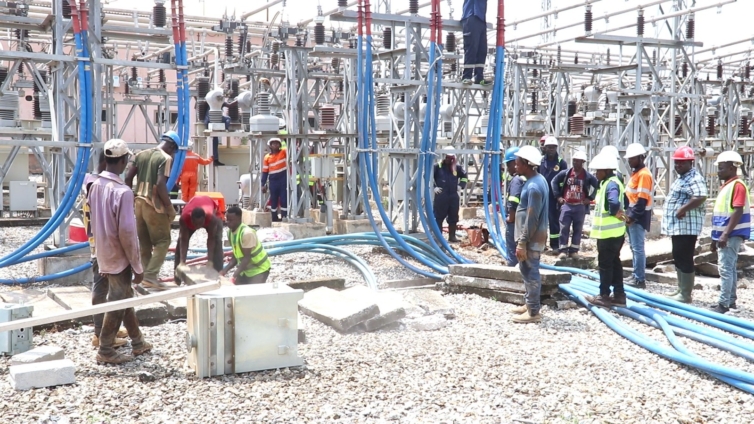Ghana’s persistent electricity reliability challenges may soon see a technology boost as tech developers work to introduce and harness the power of Artificial Intelligence (AI).
The “AI for Energy” project under the Artificial Intelligence for Sustainable Development (AI4SD) initiative is collaborating with the Ghana Grid Company (GRIDCo) to predict transformer faults and schedule preventive maintenance through the use of AI.
The AI4SD Energy theme lead, Prof. Francis Kemausuor, revealed that the goal is to reduce downtime caused by transformer failures, a major contributor to power outages.
“Transformers are critical not only for electricity distribution but also for industrial operations. When they fail, the resulting downtime is expensive and affects thousands of homes and businesses,” Prof. Kemausuor noted.
The project, still in its early stages, is currently training AI models using publicly available data from academic and industrial sources.
These models are being tested to determine the suitable model for use with Ghana’s grid data.
“We have requested for data from GRIDCo. Once we receive it, we shall test the models using the GRIDCo data” Prof. Kemausuor said.

According to the Energy theme lead, the collaboration with GRIDCo involves access to several years of transformer performance data.
He added that, “The initial plan is to pilot the system using a few transformers”. “If successful, the technology will be scaled across the national grid”
“We’re looking for transformers with long-term operational data. That history is key for AI systems to identify patterns that can lead to faults.”
Explaining how the system would work, Prof. Francis Kemausuor gave the analogy of a mobile phone overheating.
“Let’s say your phone shouldn’t operate in a temperature beyond 50 degrees Celsius. If it does repeatedly, it might break down. A transformer has similar parameters. If we can track and analyze those using sensors and AI, we can prevent failures before they happen,” he explained.
The initiative is also looking outward, hoping to learn from international examples.
“There are companies in France and Finland already doing this. We want to visit them, study their systems, and see what can be adapted for Ghana,” he said.
Prof. Kemausuor acknowledged the support of the French government through the French Embassy in Ghana, which is backing the AI4SD initiative.
He also extended an invitation to local AI experts to collaborate on the project.
“This work is a collective effort. Our team includes young engineers and computer scientists who are gaining valuable skills along the way. We’re excited about the potential to improve electricity reliability for Ghanaians using AI.”
Latest Stories
-
Anlo Youth Council welcomes Blekusu Sea Defence Phase II but warns of looming danger on unprotected coastal stretch
3 minutes -
School under siege – Why cybersecurity must be a top priority in Ghanaian classrooms
7 minutes -
Police arrest Nigerian suspect in armed robbery attack at Avenor
12 minutes -
Volta NDC Chair: Mahama’s fast-track projects signal real change for the region
14 minutes -
Sakumono Ramsar site demolition Phase II met with fierce resistance from residents
14 minutes -
Blekusu Sea Defence Phase II: Council of State rep says project marks turning point for Volta’s coastline
19 minutes -
CARISCA 2025 reimagines Africa’s supply chains for sustainability
27 minutes -
Ejisu MP calls on government to fix bad roads
32 minutes -
Police foil armed robbery attempt in Accra, two suspects killed
47 minutes -
Northern Regional PURC reports impressive achievements in mid-year report
49 minutes -
Parliament passes Ghana Medical Trust Fund Bill
1 hour -
Chinese firms explore opportunities under Ghana’s 24- Hour Economy programme
1 hour -
Dr Zanetor Agyeman-Rawlings joins Ghana’s delegation to Pan African Parliament
1 hour -
Forum in Mali sparks debate on Africa’s historical claims for reparations
1 hour -
Northern Region: PURC resolves consumer utility concerns with innovative outreach programmes
1 hour

